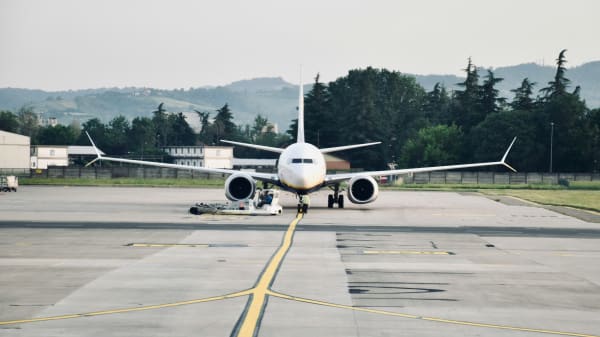Exploring the World of Chartered Flight Careers
If you're an aviation fanatic with dreams of journeying around the globe while making a promising career, the world of chartered flight careers is just the adventure you're looking for. This sector of aviation offers a rich diversity of opportunities in both flight and ground roles, promising a career that is fulfilling, financially rewarding, and abuzz with excitement.
Whether you’re a young adult making a career selection, a professional pursuing a shift in aviation, or a flying enthusiast curious about careers in this sphere, this article dives deep into the exciting world of chartered flight careers.
Position Roles in Chartered Flight Careers
Chartered flight careers come with various positions, each with its unique set of responsibilities and prerequisites. Here's a low-down on some notable roles in this sector:
- Pilots: A chartered flight pilot is the primary role many think of when discussing this career. Pilots are in charge of navigating the jet safely. A pilot requires substantial training, typically acquiring a bachelor's degree in aviation, experience hours of flying, and completion of pilot training programs.
- Flight Attendants/Cabin Crew: This position ensures passenger safety and comfort during the flight. The role requires exceptional customer service skills, communication skills, and emergency protocol awareness.
- Air Traffic Controllers: This ground role is crucial for safe take-offs and landings, effectively communicating weather reports, flight route instructions, and other essential information.
- Aircraft Mechanics/Technicians: Those in this role handle aircraft inspections and maintenance, ensuring optimal condition before landing and take-off.
- Flight Dispatchers: They plan flight schedules, track aircraft in flight, give route instructions to pilots, and issue warnings about weather conditions. They work closely with pilots to make crucial decisions.
What makes Chartered Flight Careers Rewarding?
There are countless reasons why those interested in the aviation industry choose to pursue chartered flight careers. Here are a few:
- Globetrotting: For those who dream of traveling the globe, these roles are a chance to explore different parts of the world while working.
- Competitive Salaries: Generally, these careers offer decent compensation, which, with experience and exposure, can increase significantly. Depending on the role, one might also get additional benefits like flying allowances or travel discounts.
- Exciting Work Environment: Each day brings a new experience in the aviation industry. Whether catering to VIP clients, navigating unique routes, or dealing with unpredictable elements, boredom is a rarity here!
- Networking Opportunities: Working in chartered flights allows you to meet and network with people from across the world and various walks of life. This diversity can be a booster for personal growth and future opportunities.
Skillsets and Educational Requirements
Chartered flight careers are fulfilling, but they also require certain skillsets and educational qualifications. Here are some necessary components:
- Education: Many flight careers require at least a bachelor’s degree in aviation or related fields. For pilots, FAA-certified training programs and a substantial number of flight hours are essential.
- Certifications and Licenses: Depending on the role, certain certifications and licenses might be necessary. For instance, flight attendants often need a FAA Certification of Demonstrated Proficiency, pilots require a commercial pilot’s license, and aircraft mechanics need an FAA mechanic’s certificate.
- Physical and Mental Health: Most roles require individuals to be in excellent health. For pilots, this includes clear vision, excellent hearing, and overall physical fitness. Strong mental health and stress management skills are also vital given the demands of the job.
- Soft Skills: High levels of communication, problem-solving skills, attention to detail, and being able to make quick decisions in stressful situations are some of the soft skills immensely beneficial in these careers.
Challenges and Mitigations
While chartered flight careers come with many perks, they also pose certain challenges. Understanding these and being prepared can help in making a well-informed decision:
- Irregular Work Schedules: This industry often requires working long hours, weekends, holidays, and sometimes at short notice. Time management and lifestyle adaptability are key.
- Job Stress: The responsibility of passenger safety, dealing with unexpected weather, or technical issues can cause stress. Regular stress management techniques can be beneficial.
- Physical Demands: Long hours of standing, heavy lifting (for flight attendants and technicians), or sitting at the control panel can be taxing on one's health. Regular exercise and a healthy lifestyle can help manage these demands.
The Future of Chartered Flight Careers
The future seems bright for chartered flight careers. Studies suggest a steady growth in air travel in the years to come. The projected increase in job opportunities for roles such as commercial pilots, flight attendants, and air traffic controllers extolls the potential of this sector.
Ultimately, a career in chartered flights is not just about globetrotting and lucrative paychecks. It’s about the thrill of soaring skies, navigating foreign territories, knowing the dynamics of an aircraft, and a shared commitment to getting passengers safely to their destinations. So, buckle up and embark on this exciting career journey that promises growth, learning, and an adventure of a lifetime!




